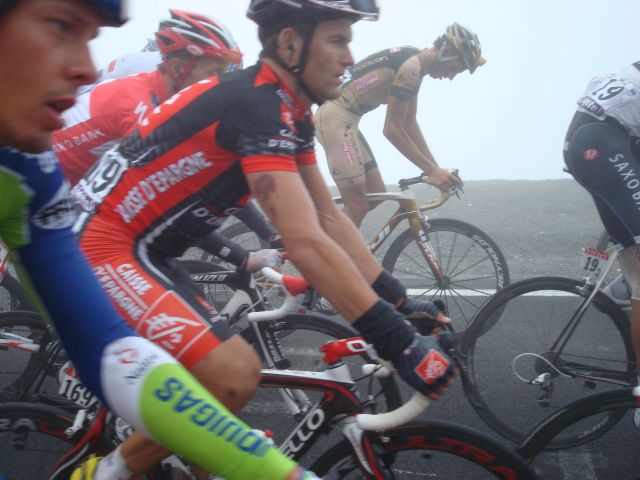
Former professional cyclist Christophe Bassons describes a doping philosophy where sometimes it is “healthier doing the Tour de France on drugs than without anything.” In an interview with CyclingNews.com, Bassons attempts to explain the larger perspective in which doping occurs in the sport of professional cycling. Bassons characterizes the doping issue as much more complicated than the usual contexts in which it is discussed e.g. healthy vs. unhealthy, good vs. bad, right vs. wrong.
“Doping is always a response to a void, a need – whether it’s for money, or success, or love, or something else. That’s why it’s a mistake to fight the war on doping in terms of health – because, if you actually analyse it, doping responds to a need there too, because you can be healthier doing the Tour de France on drugs than without anything. […]
“Everyone has their own sense of legitimate and illegitimate, which is different from what is licit and illicit. For example, I might think it’s legitimate to drive my car at 90kph in an 80kph zone, if me being late means that my son will walk out into the school playground and not see his dad. For Richard Virenque, doping was legitimate because, for some reason, he needed the love and admiration of the public. For some riders from Eastern Europe it’s legitimate because they need money for their families – which is hard to condemn. Or a teenager might take steroids and go to the gym to pump iron because he’s uncomfortable with his body. In that case, doping serves his need – it perpetuates it too, but as far as the kid is concerned it solves his particular problem…”
The perspective described by Bassons is one that is usually absent from media discussions on doping. Some academics recognize the value of looking at the big picture in which doping occurs.
For example, Dr. Jay Coakley, Professor Emeritus at the University of Colorado in Colorado Springs and author of “Sports in Society: Issues and Controversies“, feels it is crucial to use what he calls “sociological imagination” to understand why athletes use steroids and performance-enhancing drugs (PEDs) by recognizing how individual biographies interact with current social and cultural factors.
Christophe Basson is well-known for being outspoken on the topic of doping in pro cycling. He was one of the first cyclists to be ostracized by the peloton after speaking out publicly about the widespread use of various drug in the sport in the aftermath of the Festina scandal at the 1998 Tour de France.
Basson is recognized by his peers as one of the few cyclists who did not participate in the doping subculture unlike other doping whistleblowers such as Floyd Landis. He was one of the first athletes to be subject to the wrath of Lance Armstrong for uncovering the subculture of doping in cycling.
Bassons said Armstrong rode up alongside on the Alpe d’Huez stage to tell him “it was a mistake to speak out the way I do and he asked why I was doing it. I told him that I’m thinking of the next generation of riders. Then he said ‘Why don’t you leave, then?'”
Lance Armstrong expressed comments in an interview reacting to Bassons’ departure from the sports and his outspoken statments on doping.
“If it’s the rider that I think it is,” Armstrong said yesterday morning, in reference to the departure of Bassons, “the one who’s always speaking about problems in cycling and doping, then I told him during the stage to Sestrières that I respected what he was saying but that I thought there was a professional and a correct way to do it. What he’s said is not good for him or his team, his sponsor and cycling. I understand his position, but if that’s what he thinks, maybe he’s better to go home. I don’t think declarations in newspapers are in his best interests. If he wants to ride professionally, he can’t speak like that, because sponsors will walk away from the sport.”
However, Christophe Bassons’ latest comments regarding his current philosophy of doping may be more likely to outrage several people in the anti-doping movement who don’t see the issue in such broad, relativistic terms.

About the author
Millard writes about anabolic steroids and performance enhancing drugs and their use and impact in sport and society. He discusses the medical and non-medical uses of anabolic-androgenic steroids while advocating a harm reduction approach to steroid education.
